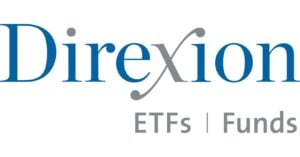Older Americans have a lot to keep an eye on as they age — from health concerns to financial planning to long-term care. But one risk that’s often overlooked is the threat to their personal information.
Sharing too much about your finances, legal matters or health — even with close friends or family — can leave you vulnerable to fraud, manipulation or unintended consequences.
Here are five things you should never reveal unless you’re speaking with a trusted professional, and the reasons why keeping them private matters.
Don’t miss
- I’m 49 years old and have nothing saved for retirement — what should I do? Don’t panic. Here are 6 of the easiest ways you can catch up (and fast)
- Want an extra $1,300,000 when you retire? Dave Ramsey says this 7-step plan ‘works every single time’ to kill debt, get rich in America — and that ‘anyone’ can do it
- Robert Kiyosaki warns of a ‘Greater Depression’ coming to the US — with millions of Americans going poor. But he says these 2 ‘easy-money’ assets will bring in ‘great wealth’. How to get in now
Your net worth or salary
Older Americans hold the majority of the nation’s wealth — nearly 73% of it, according to SmartAsset. That makes them a prime target for scammers, fraudsters and even opportunistic acquaintances.
Criminals often zero in on retirees and older Americans because of their financial standing. And according to the FBI, seniors and retirees lose roughly $3 billion annually to fraud.
When others know the details of your financial situation, like your salary, savings or net worth, it can increase your exposure to theft, manipulation or financial abuse.
To protect yourself, keep that information private unless you’re working with a licensed financial advisor or another trusted professional.
Passwords and other sensitive personal information
Relying on family for tech support is common, but handing over your passwords, PINs or login details can put you at serious risk.
Whether it’s your banking credentials, Medicare account, or even just your email password, sharing that access opens the door to mistakes, misuse or, in worst cases, exploitation.
Cybercrime is on the rise among older Americans, with criminals targeting seniors who may be less familiar with online security practices. And once your personal information is out there, it’s incredibly difficult to rein it back in.
To stay safe, never share passwords unless it’s absolutely necessary. The more tightly you guard your digital life, the less vulnerable you are to scams and identity theft.
Power of attorney
A power of attorney (POA) can be a smart and necessary tool as you age. It allows someone you trust to manage your affairs if you’re ever unable to do so yourself. But it’s also one of the most commonly misused legal documents.
Granting someone POA gives them broad authority to act on your behalf, which can include accessing your bank accounts, selling property or making medical decisions. And when that authority falls into the wrong hands, it can lead to serious financial harm or even elder abuse.
According to Carefull, misuse of power of attorney is a leading method of financial exploitation among older adults. Even well-meaning family members can overstep, especially if they feel entitled to manage your affairs their way.
To protect yourself, don’t rush the process. Work with a qualified attorney to create a POA that clearly outlines limits and responsibilities. Only assign this role to someone you trust implicitly, and review the document regularly to ensure it still reflects your wishes.
Read more: You don’t have to be a millionaire to gain access to this $1B private real estate fund. In fact, you can get started with as little as $10 — here’s how
Details of your will
Your will and estate plan contain some of your most sensitive information, from a full list of your assets to exactly who will receive what. In the wrong hands, those details can be used against you.
Scammers may see your estate plan as a blueprint for potential fraud, while even well-meaning relatives might try to influence your decisions once they know what’s at stake. In some cases, that pressure can turn into manipulation or financial abuse.
In fact, a survey published in the Journal of General Internal Medicine found that the most common perpetrators of financial exploitation of seniors were family members at 57.9%, followed by friends and neighbors at 16.8%.
To avoid putting yourself in a vulnerable position, don’t share the details of your will with anyone who doesn’t need to know. Keep those conversations between you, your lawyer and your executor — and make sure everything is stored securely and updated regularly.
Mental health or other health-related issues
As we age, health issues involving memory or cognitive function can become more common. Unfortunately, this can also make older adults more vulnerable to exploitation.
A study published in the National Institute of Justice Journal found that cognitive decline is closely linked to an increased risk of fraud. When others are aware of your mental health challenges, it can open the door to manipulation.
This doesn’t mean you should hide your health concerns. But it does mean you should be thoughtful about who you share them with. Stick to medical professionals and a small circle of trusted loved ones. Put protections in place, like legal safeguards and a medical power of attorney, to ensure your wishes are honored no matter what.
Protecting your personal information is just as important as protecting your physical health or financial assets, especially as you get older. By keeping sensitive details private and working only with qualified professionals, you can safeguard your independence and avoid unnecessary risks down the line.
What to read next
- Financial aid only funds about 27% of US college expenses — but savvy parents are using this 3-minute move to cover 100% of those costs
- Here are the 6 levels of wealth for retirement-age Americans — are you near the top or bottom of the pyramid?
- Here are 5 ‘must have’ items that Americans (almost) always overpay for — and very quickly regret. How many are hurting you?
- How much cash do you plan to keep on hand after you retire? Here are 3 of the biggest reasons you’ll need a substantial stash of savings in retirement
Money doesn’t have to be complicated — sign up for the free Moneywise newsletter for actionable finance tips and news you can use. Join now.
This article provides information only and should not be construed as advice. It is provided without warranty of any kind.


